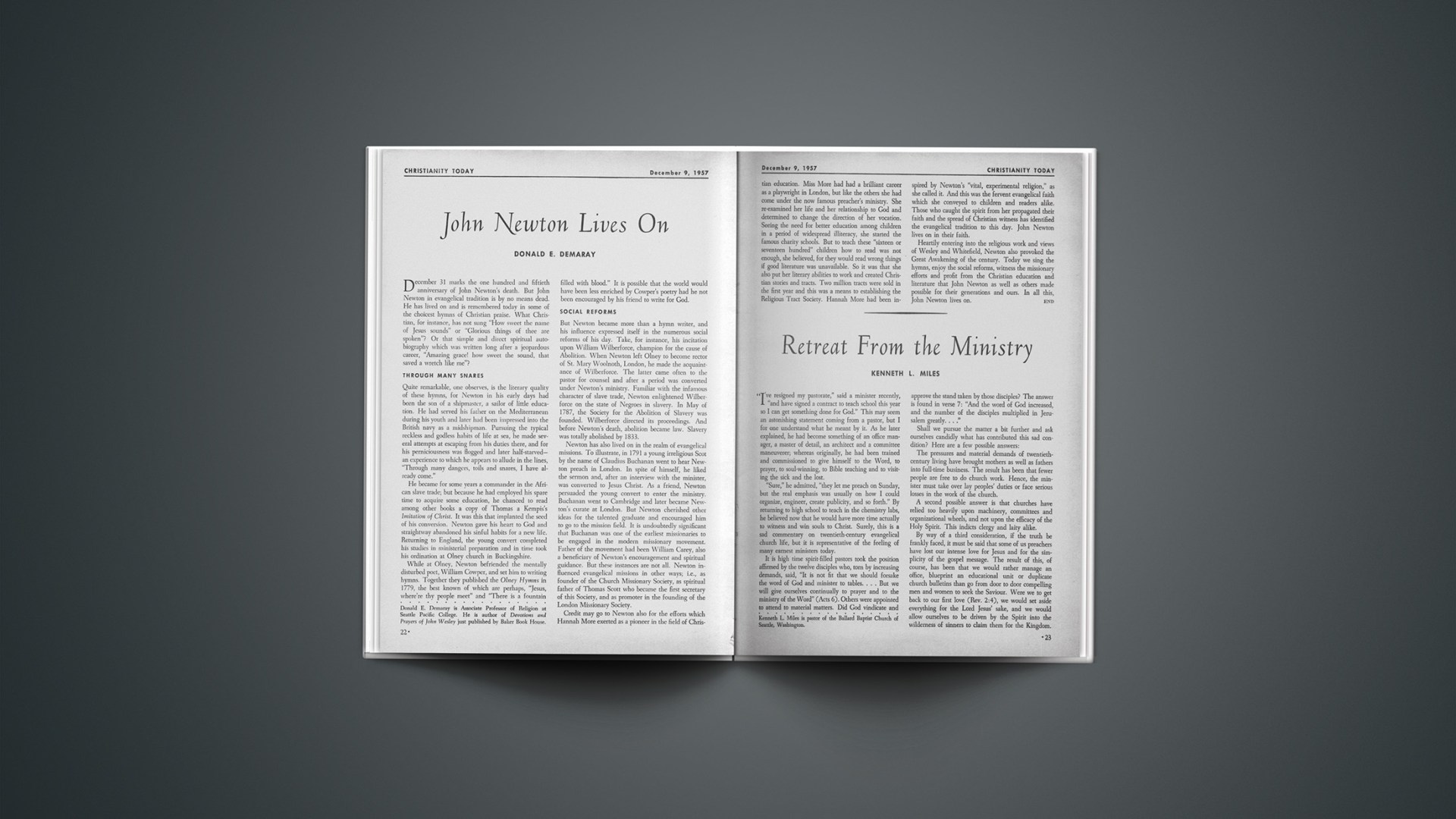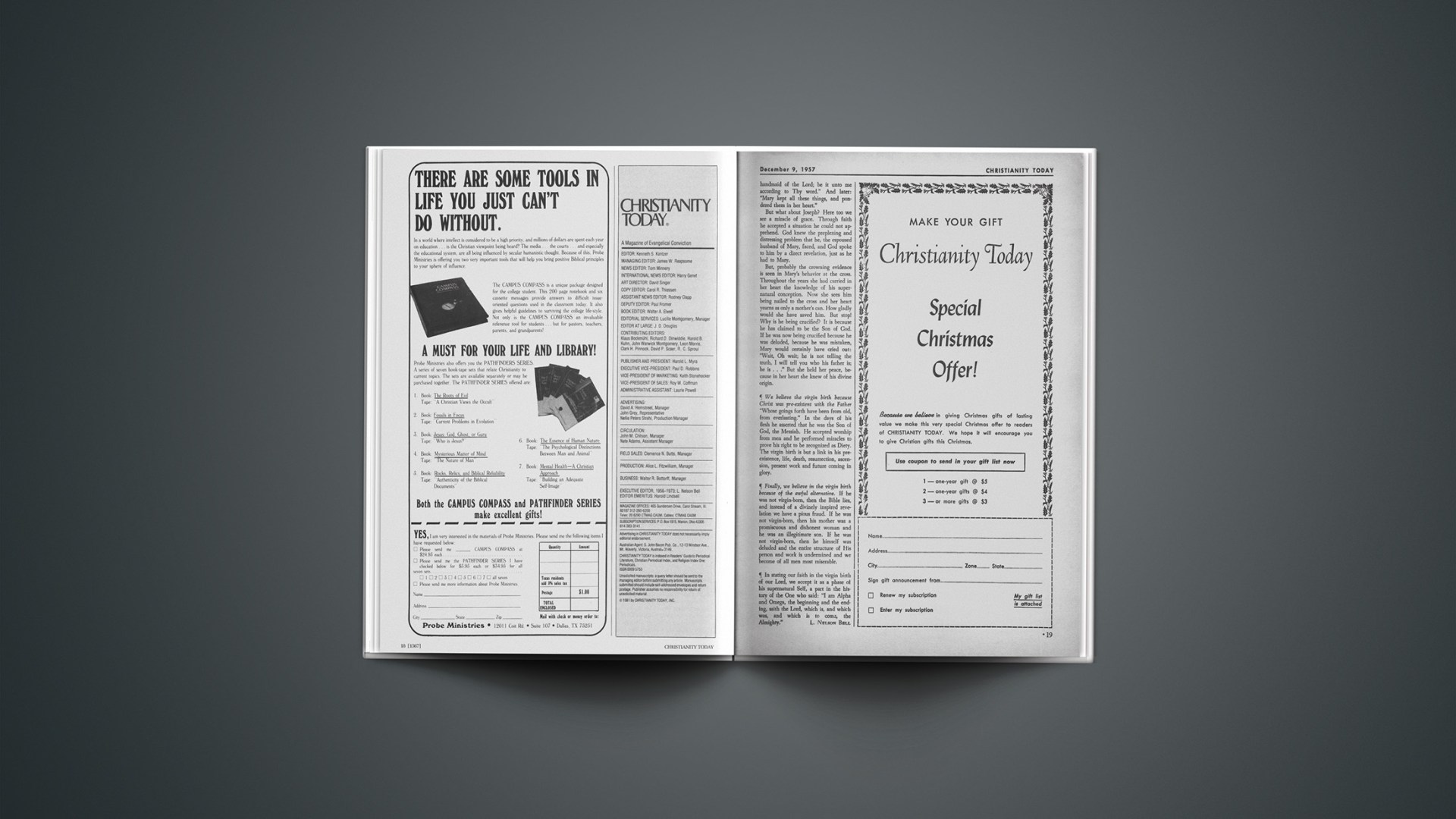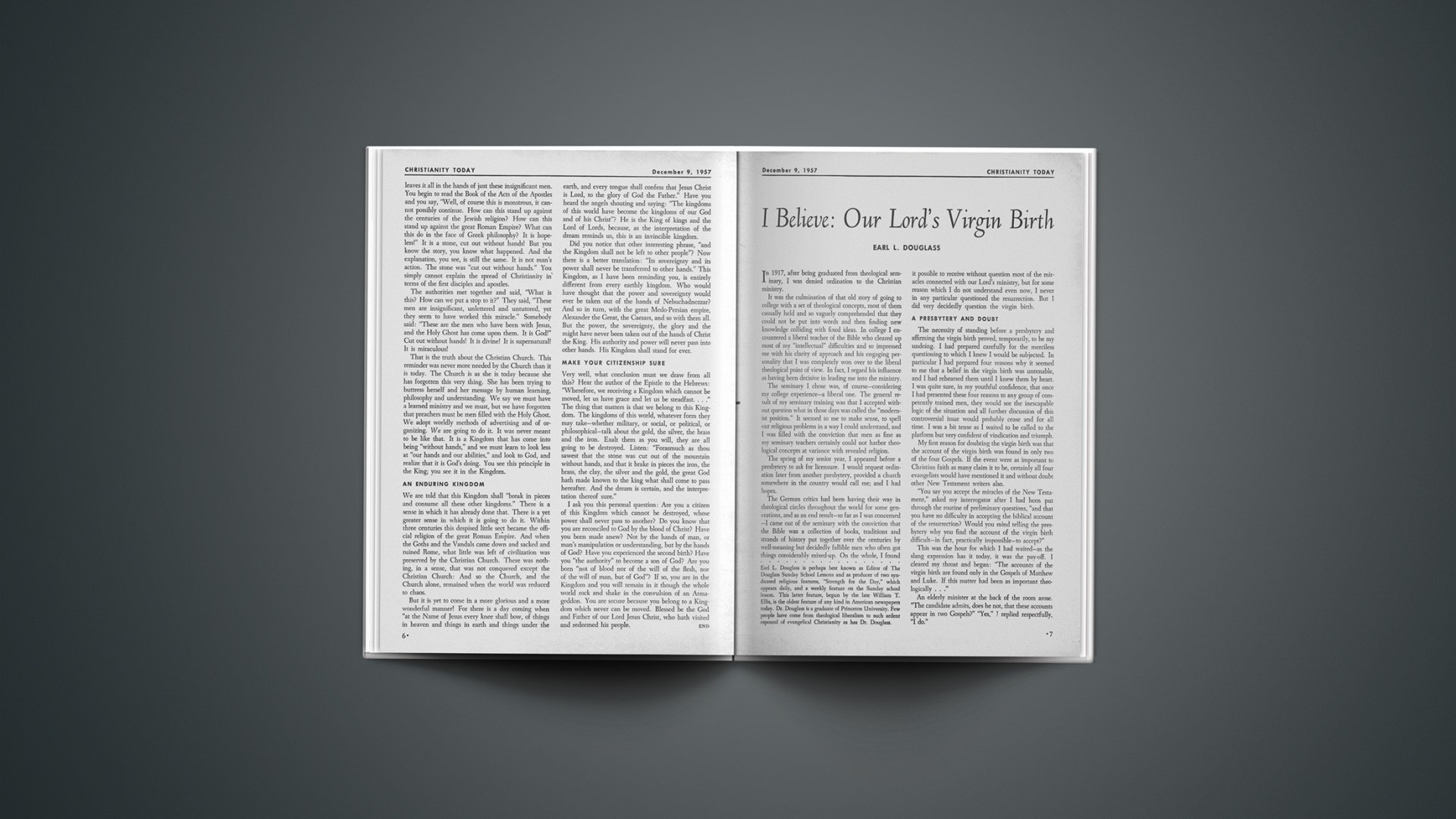“I’ve resigned my pastorate,” said a minister recently, “and have signed a contract to teach school this year so I can get something done for God.” This may seem an astonishing statement coming from a pastor, but I for one understand what he meant by it. As he later explained, he had become something of an office manager, a master of detail, an architect and a committee maneuverer; whereas originally, he had been trained and commissioned to give himself to the Word, to prayer, to soul-winning, to Bible teaching and to visiting the sick and the lost.
“Sure,” he admitted, “they let me preach on Sunday, but the real emphasis was usually on how I could organize, engineer, create publicity, and so forth.” By returning to high school to teach in the chemistry labs, he believed now that he would have more time actually to witness and win souls to Christ. Surely, this is a sad commentary on twentieth-century evangelical church life, but it is representative of the feeling of many earnest ministers today.
It is high time spirit-filled pastors took the position affirmed by the twelve disciples who, tom by increasing demands, said, “It is not fit that we should forsake the word of God and minister to tables.… But we will give ourselves continually to prayer and to the ministry of the Word” (Acts 6). Others were appointed to attend to material matters. Did God vindicate and approve the stand taken by those disciples? The answer is found in verse 7: “And the word of God increased, and the number of the disciples multiplied in Jerusalem greatly.…”
Shall we pursue the matter a bit further and ask ourselves candidly what has contributed this sad condition? Here are a few possible answers:
The pressures and material demands of twentieth-century living have brought mothers as well as fathers into full-time business. The result has been that fewer people are free to do church work. Hence, the minister must take over lay peoples’ duties or face serious losses in the work of the church.
A second possible answer is that churches have relied too heavily upon machinery, committees and organizational wheels, and not upon the efficacy of the Holy Spirit. This indicts clergy and laity alike.
By way of a third consideration, if the truth be frankly faced, it must be said that some of us preachers have lost our intense love for Jesus and for the simplicity of the gospel message. The result of this, of course, has been that we would rather manage an office, blueprint an educational unit or duplicate church bulletins than go from door to door compelling men and women to seek the Saviour. Were we to get back to our first love (Rev. 2:4), we would set aside everything for the Lord Jesus’ sake, and we would allow ourselves to be driven by the Spirit into the wilderness of sinners to claim them for the Kingdom.
Kenneth L. Miles is pastor of the Ballard Baptist Church of Seatde, Washington.











